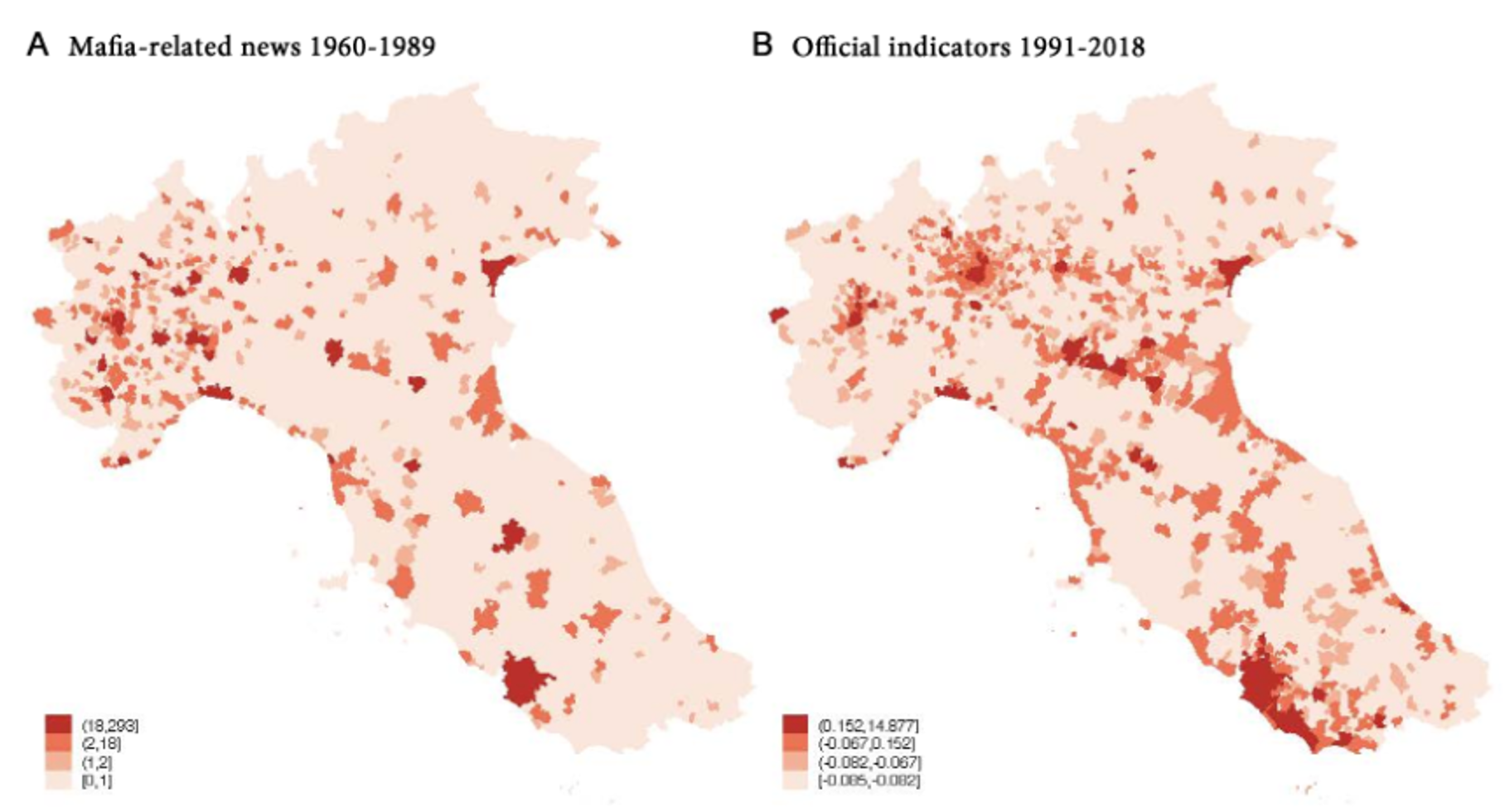Exploiting migrants can help criminal groups expand into strong states
Organized crime is widely considered a problem in weak states, emerging where states fail to provide security and property rights protection. However, criminal groups have successfully expanded to strong states with modern economies and strong enforcement. How do they do it? My research explains how mafias thrive by offering a service that even strong states struggle to eliminate: helping businesses break laws without getting caught.
How do mafias move to strong states?
Classic theories suggest criminal organizations flourish where states are weak. They provide protection and services where states fail to do so. However, this does not explain why mafias have expanded into places like Northern Italy, Germany, and the US, where law enforcement is strong.
Expanding to strong states should be difficult. These states can detect and dismantle criminal networks. When they move, mafias must also rebuild their networks and reputations from scratch. How did they succeed?
The hidden demand for illegal services
The answer lies in demand. Strong states enforce rules and punish those who break them, making illegal activity costly. But businesses still need ways to skirt labor laws, avoid taxes, or cut costs. Mafias can fill this gap by providing illegal services while shielding their clients from prosecution.
During the economic boom of the 1960s and 1970s in Northern Italy, construction firms needed cheap, informal labor. Hiring undocumented workers was illegal and risky. Mafias solved this problem by supplying migrant labor from mafia-affected regions. They ensured workers did not report violations, making it safer for businesses to break the law.
How do we know this?
I built a new dataset tracking mafia presence over time to test this theory. I scraped historical newspaper articles for mafia-related crimes and validated this data using judicial records. The results show that mafia expansion followed a clear pattern:
- A boom in construction increased demand for unskilled labor.
- Migration from Southern Italy provided a labor pool that mafias could control.
- Local firms collaborated with mafias to access illegal labor while avoiding prosecution.
Using an instrumental variable approach leveraging discontinuous variation in construction growth and a shift-share instrument for migration, I show that mafias did not simply expand due to migration alone. Instead, they succeeded where labor demand and their ability to supply illegal workers aligned.

Rethinking how mafias operate
These findings challenge the idea that mafias thrive only where the state is weak. Instead, they complement strong states by helping businesses evade labor laws. This insight changes how we think about organized crime. It is not just a replacement for weak governance—it is also a tool for rule evasion in highly regulated economies.
This pattern is not unique to Italy. Similar dynamics have been observed in:
- The Italo-American mafia in early 20th-century New York controlled migrant labor through the padrone system.
- Nigeria’s criminal groups in modern Italy are exploiting undocumented migrants in agriculture and construction.
- Cartels in the US are controlling migrant labor in farming and other low-wage sectors.
How do we stop mafia expansion?
Most anti-mafia policies focus on law enforcement crackdowns. But my research suggests that preventing mafia expansion requires a complementary approach. Reducing reliance on criminal intermediaries means addressing the economic and social conditions that make their services valuable. Policies that help integrate migrant workers into the formal economy—work permits, stronger labor protections, whistleblower safeguards—can weaken mafias’ grip.
Conclusion
Mafias do not just replace weak states; they also thrive where strong states make illegal activity more costly. Their success relies on forging local agreements that protect economic actors from law enforcement. Understanding this mechanism is key to preventing organized crime from taking root in new territories.
Author
Gemma Dipoppa


I love your blog and what you post. Since i started following your I have learned a lot from your post and it has help me build my own social medial platform. Here